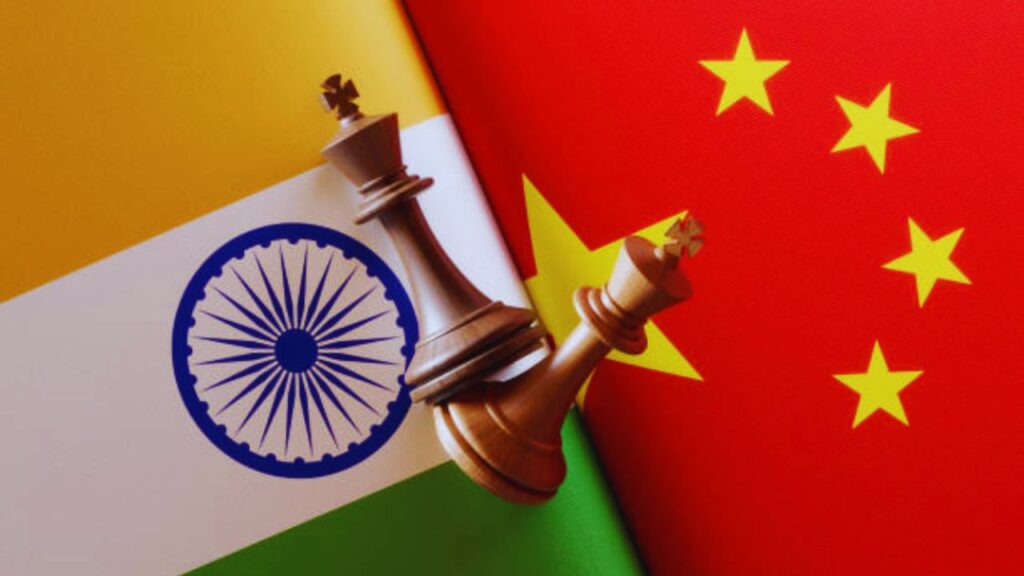The 21st century is no longer defined solely by material growth. It is increasingly about how nations reinterpret power, legitimacy, and the norms that underpin the international order. The rise of China and the resurgence of India present two competing visions for the Global South, visions that are shaping the future of global governance, multilateralism, and development diplomacy. While China pursues what can be described as a “new mandate of power,” India is offering a “new mandate of legitimacy.”
The contest is not merely regional. It is civilizational and systemic. The central question is: whose model will resonate more deeply with the Global South, and by extension, define the contours of the emerging world order?
China’s New Mandate of Power
China’s rise is neither accidental nor purely economic—it is strategic, deeply ideological, and historically informed. The Chinese Communist Party (CCP) has woven together narratives of civilizational rejuvenation, economic modernization, and national security to project itself as a global alternative to the Western-led order.
- Strategic Thinking: China fuses historical grievances with civil-military fusion and regime legitimacy into a coherent posture. The “China Dream” (中国梦) is not only about reviving national pride but also about recasting the architecture of global influence.
- Chronopolitics of Power: Unlike democracies driven by short-term electoral cycles, Beijing operates on long temporal horizons. Its infrastructure diplomacy—stretching across decades—and its willingness to defer flashpoints like Taiwan or the Line of Actual Control (LAC) reflect strategic patience.
- Economic Diplomacy: From concessional lending to Belt and Road projects in Africa and Asia, to recalibrating ties with the EU and the US, China adapts its diplomacy pragmatically while seeking structural dependence from partners.
- Multilateralism and Norm-setting: Through active engagement in the UN and other institutions, China pushes for rule-making from within—reshaping multilateralism to suit its centralized vision.
- Domestic Legitimacy as Global Strength: Xi Jinping’s consolidation of authority, bolstered by techno-nationalism and the People’s Liberation Army’s growing role, serves as the foundation for China’s external assertiveness.
This “mandate of power” emphasizes control, influence, and the centralization of authority—both domestically and internationally.
India’s New Mandate of Legitimacy
India offers a markedly different vision. Unlike China’s state-driven model, India’s approach draws strength from democratic legitimacy, pluralism, and an ethos of partnership. Its appeal lies not in the promise of grand infrastructure or immediate economic aid, but in long-term trust and respect for sovereignty.
- Partnerships Built on Trust, Not Traps: India’s development engagements, especially in Africa and Asia, are rooted in transparency and capacity-building rather than coercion. Lines of credit, digital connectivity, and educational exchanges are structured to empower rather than entrap.
- Inclusive Development Diplomacy: India champions South-South cooperation, focusing on building resilience in agriculture, healthcare, and digital infrastructure—sectors that address everyday realities of the Global South.
- Reformist Multilateralism: India’s advocacy for UN reform, G20 inclusivity, and a multipolar rules-based order reflects its commitment to democratizing global governance rather than capturing it.
- Cultural and Civilizational Soft Power: From yoga and Ayurveda to the narrative of “Vasudhaiva Kutumbakam” (the world is one family), India’s soft power resonates across geographies, offering a moral legitimacy that contrasts with China’s transactional approach.
In this sense, India’s “mandate of legitimacy” is not about commanding obedience but about cultivating voluntary alignment.
Contest in the Global South
The India-China dynamic is becoming the central axis of competition in the Global South. This is not a rivalry of equals but a clash of models.
- China centralizes power; India democratizes it.
- China offers infrastructure-led statecraft; India offers capacity-led partnerships.
- China’s model relies on control; India’s thrives on consent.
In regions like Africa, Southeast Asia, and Latin America, these distinctions are not abstract—they define choices for governments navigating economic dependency, political autonomy, and social resilience. The question is whether development comes with sovereignty or at the cost of it.
Strategic Implications for India
For India, this is both a challenge and an opportunity. The challenge lies in scale: China’s economic clout dwarfs India’s. The opportunity lies in legitimacy: India’s democratic and inclusive model carries a moral appeal unmatched by Beijing.
India must therefore:
- Scale its Development Diplomacy: By leveraging digital public infrastructure, health cooperation, and climate partnerships, India can deliver high-impact results at relatively low cost.
- Strengthen South-South Solidarity: India must position itself as the voice of the Global South, not merely a regional power. The G20 presidency in 2023 provided a template for this leadership.
- Anchor in Multipolarity: By deepening ties with Africa, ASEAN, Latin America, and the Middle East, India can expand the constituency for a rules-based multipolar order.
- Leverage Soft Power Strategically: Civilizational narratives, educational exchanges, and cultural diplomacy must complement India’s economic and geopolitical initiatives.
Future of Global Order: Competing Mandates, Shared Future
The future of global order will not be shaped by the accumulation of power alone but by the legitimacy of that power. While China seeks a new mandate of power, India offers a new mandate of legitimacy.
India’s partnerships in the Global South are built on trust, transparency, and respect for sovereignty. Its multilateral engagement is anchored in reform and inclusion. Its vision for shared growth and a multipolar rules-based order offers an alternative to the centralized, control-oriented model of Beijing.
Ultimately, the Global South is not a passive battleground. It is an active agent shaping its own destiny. And in that process, the choice between power and legitimacy will define not only the balance between India and China but the trajectory of the 21st-century world order.

